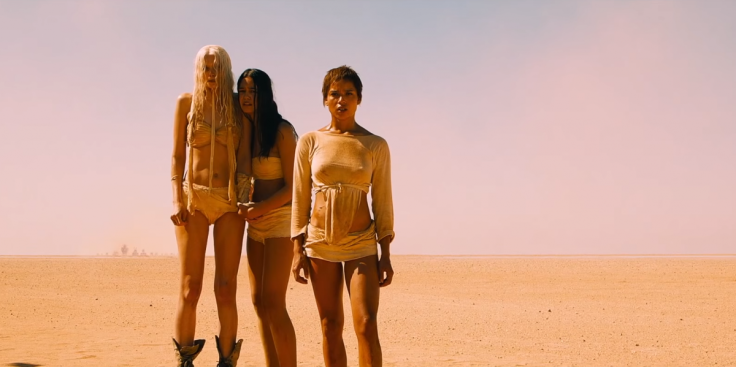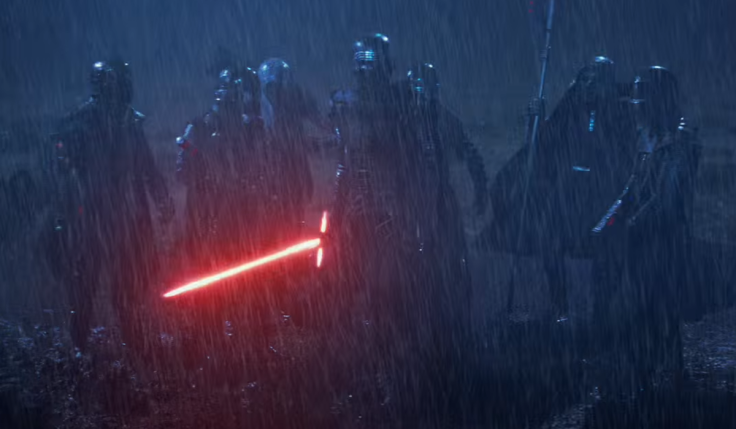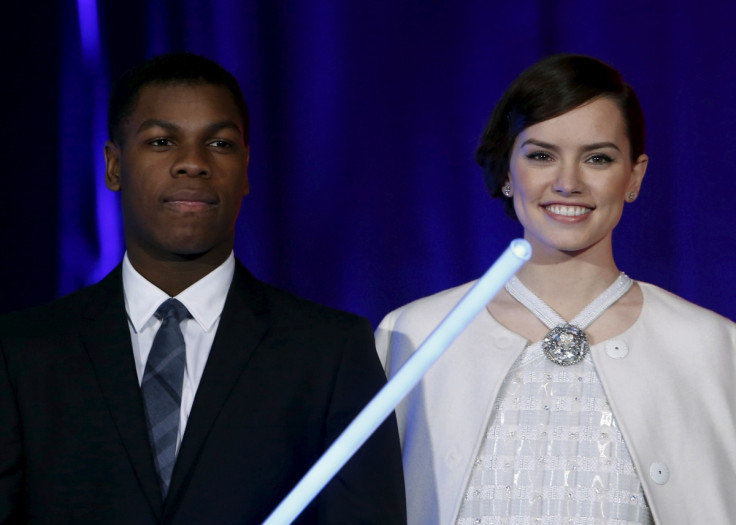5 things Star Wars: The Force Awakens has taught us about feminism

Warning, contains spoilers.
Last year's Mad Max: Fury Road was hyped as a feminist action film, perhaps in a deliberate decision to capitalise on the rising popularity of feminism, perhaps simply because a group of misogynists heard about the female lead and hit the headlines by threatening to boycott it. But while in some ways the film was refreshing and exciting (it featured the powerful Imperator Furiosa rising up against an oppressive, patriarchal regime), it still had some disappointing aspects from a feminist perspective.
The main character's plan failed, leaving her to follow titular hero Max's instructions instead; she ended up being rescued by him at the end; and the exploited women Furiosa saved were played by stereotypically gorgeous women in flimsy white costumes (who just had to hose each other down in the desert). All this has been explored already in detail, but what interested me was to see how The Force Awakens, with less pre-release hype about its feminist credentials, would measure up.
1. A film doesn't have to be 'about' feminism to be feminist

The film is a breath of fresh air. What makes Rey an effortless, fist-pumping, feminist heroine is the fact that her sex is incidental to her smart, strong actions. Her story arc isn't about being a woman, or defying specific stereotypes; she just kicks ass like any other central character. Her costume is as practical, dusty, non-sexualised and rarely changed as the men's. Her bravery, fighting skills and endurance aren't 'because of' or 'in spite of' her womanliness, they're just part of her.
After the men have tried and failed, she is the only one strong enough to take on Kylo Ren without being killed or knocked unconscious. Apart from her initial rejection of Finn's helping hand, the fact that she's a woman simply doesn't come into it at all. The same is true of the other strong female characters, from General Leia Organa to Captain Phasma to Maz Kanata. There's also no unnecessary love-interest shoehorned in, and Leia's complex emotions and maternal grief only serve to strengthen, not enfeeble her. In short, Rey isn't a woman playing the lead: she's simply the lead.
2. One big step forward doesn't mean the battle is won

While director JJ Abrams has made strides towards diversity both in casting the leads and in populating his crowd scenes, the memo doesn't seem to have reached the merchandising team. Rey might have provided girls with an awesome new role model, but they'll be lucky to find the toys to let them re-enact her exploits.
Not only have several toy sets excluded the film's female characters, but the new Star Wars Monopoly game leaves out Rey while including a character token for Darth Vader, who doesn't even appear in The Force Awakens. So while powerful individuals like Abrams can help us close the gender gap faster, we won't solve the problem until there is a wider acknowledgement of the idea that girls can be heroes (and just as interested in Star Wars as their brothers) too.
3. People strangely aren't freaking out about spoiler alerts the way they do over trigger warnings

If you have a social media profile of any kind you will probably have seen posts, comments, blogs and even mainstream media articles over the past month prefaced with 'SPOILER ALERT!' Within the online community, there's been great consideration about trying not to spoil the plot of the Force Awakens for those who haven't seen it yet. Spoiler alerts aren't a big deal – they don't hurt those who don't need them, they're helpful to those who do, and their aim is to inform readers in advance, not to censor material.
Exactly the same could be said about trigger warnings, a simple few words added to the beginning of an article that might be upsetting or triggering to survivors of sexual violence, or other forms of abuse. So what a shock to realise that nobody has been up in arms or having an anxious meltdown about the proliferation of spoiler alerts, claiming they are coddling millennials, or stifling free speech, or endangering academic thought! Perhaps empathy is only threatening when it involves feminists?
4. Even the toughest no-nonsense general can experience sexism

Sadly, even portraying the nuanced, powerful General Leia Organa didn't protect actress Carrie Fisher from receiving snide comments and taunts about her appearance and weight. But like John Boyega's powerful response to racists who complained about a black Stormtrooper, Fisher's comebacks wiped the floor with the haters.
From the eloquent: "I identify more with who I feel myself to be than what I look like. Either way, am I obliged to entertain you with my appearance?" to the succinct: "blow me", she provided the kind of flawless riposte Leia would have been proud of.
5. It's total nonsense that films with strong female leads can't succeed at the box office

Just 20 days after release (and well after people realised it had a leading female character), The Force Awakens shattered box office records to become the highest-grossing film of all time in North America (not accounting for inflation). And judging by the number of young fans clamouring for merchandise featuring Rey, it's more likely because of the kick-ass scavenger than in spite of her. The outcry has even prompted retailer Hasbro to promise a new edition of Star Wars Monopoly. So let's put to bed the ridiculous idea that women can't carry Hollywood films once and for all.
As for the argument that it's 'difficult' or 'complicated' for studios to embrace diversity, Abrams has proved that to be false too. As Yoda would say: "Do or do not. There is no try."
© Copyright IBTimes 2025. All rights reserved.






















